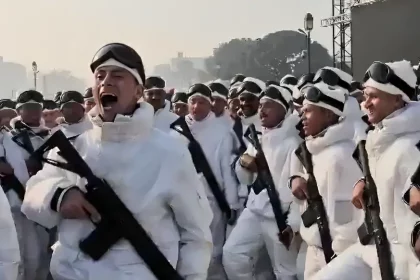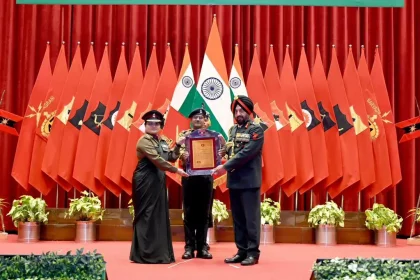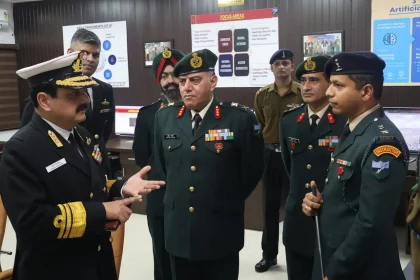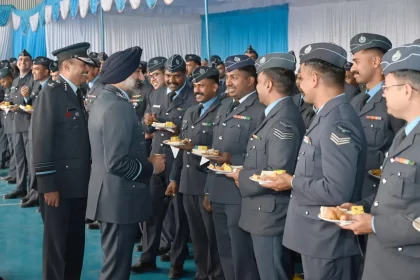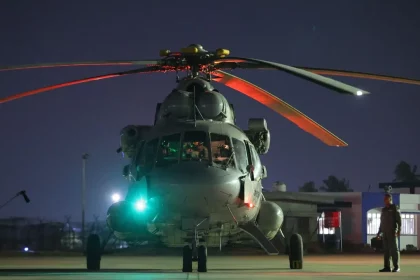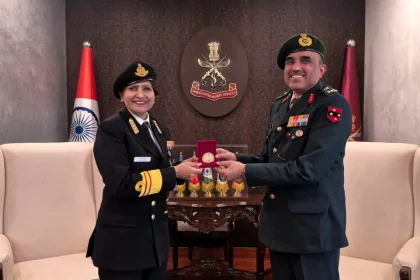Watch: Kumaon Regiment Soldiers March to ‘Dil Na Diya’ Song During Republic Day Rehearsal
Indian Army troops sing “Dil Na Diya” while marching in perfect step, showcasing discipline, camaraderie, and high spirits ahead of…
318 Field Hospital Awarded GOC-in-C South Western Command Unit Citation on Army Day 2026
Honour recognises sustained professional excellence, high standards of medical care, and unwavering commitment to duty.
Vice Admiral Sanjay Vatsyan Visits MCTE, Mhow
VCNS reviews MCTE initiatives, lauds contributions to indigenous defence technologies.
Air Chief Marshal AP Singh Reviews Operational Preparedness at Central Air Command Commanders’ Conference
CAS commends TEAM CAC for professionalism during Operation Sindoor, urges innovation, jointness, and future-ready force posture.
Indian Air Force Executes High-Risk Night MEDEVAC in Kishtwar Sector
NVG-enabled operation highlights IAF’s all-weather readiness, jointness, and advanced night-flying capability.
AMC Officers Superannuating on January 21, 2026 Felicitated at DGAFMS Interaction
DGAFMS Surgeon Vice Admiral Arti Sarin lauds three decades of service by retiring AMC officers, highlights their role in shaping…

